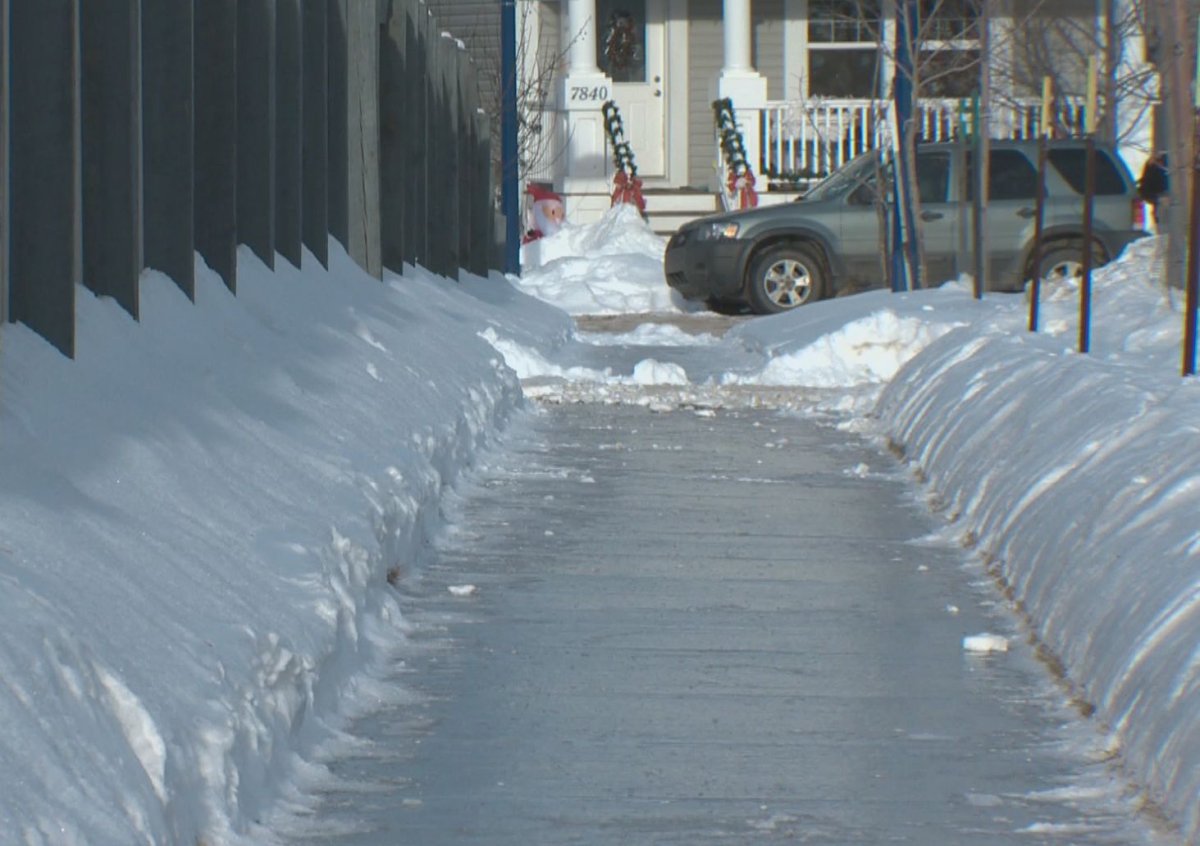When it comes to walking outside during the winter, my rule has always been “better safe than sorry,” even if it means doubling the time it usually takes me to walk somewhere. However, even if you walk carefully and wear proper footwear, it is still possible to fall victim to a patch of ice. When someone slips and falls on a public sidewalk due to ice or snow, the city may be liable for the injuries sustained if it was grossly negligent. The relevant provision can be found in section 44(9) of the Municipal Act.

In order to make a successful claim against a municipality in Ontario, written notice must be given to the city within 10 days after the incident and sent by registered mail to the clerk of the municipality. This 10 day rule is a unique requirement for claims against a city and does not apply to claims against private property owners. Failure to give notice will not be fatal to a claim if the judge finds that there is reasonable excuse for the insufficiency of notice and the municipality is not prejudiced in its defence. Furthermore, there is a two year limitation to start any legal proceeding, whether against the city or against private parties.
What qualifies as gross negligence on the part of a city? In the case of Dorschell v. City of Cambridge, the court cited the following scenarios as examples:
- N.S. mom calls for better ultrasound access after private clinic reveals twins
- As Canada’s tax deadline nears, what happens if you don’t file your return?
- 3 women diagnosed with HIV after ‘vampire facials’ at unlicensed U.S. spa
- Posters promoting ‘Steal From Loblaws Day’ are circulating. How did we get here?
- If a layer of ice had been allowed to remain on the sidewalk for two or three days on a level sidewalk
- If a sidewalk was heavily travelled and ice and snow had been allowed to remain for a period of time
- If, with the knowledge that in southern Ontario, a thaw accompanied by rain followed by a drop in temperature to below freezing would most likely cause icy conditions on the street, the city did not move with reasonable speed to correct the icy conditions
- If the municipality has no policy or a policy not to perform its duty to ensure the safety of its citizens from snow and ice on the sidewalk
In Crinson v. Toronto (City), an Ontario Court of Appeal decision, the plaintiff was walking home from work in the City of Toronto when he slipped and fell on a sidewalk covered with ice. He severely fractured his ankle which required the permanent insertion of metal screws and he subsequently sued the City of Toronto for damages. The courts held that there must be more than a breach of duty of care on the city’s part. In this case, the evidence was that the knowledge of sidewalk conditions came from either the city patrollers who drove the streets, weather forecasts, or their own observations if they left their office to personally inspect the sidewalks. In this instance, almost 34 hours elapsed between the time the City was made aware of the dangerous sidewalk conditions and when it responded. Furthermore, the city was unable to offer an explanation for this delay in taking action. The courts held that the failure for the city to commence sidewalk salting earlier amounted to gross negligence. The plaintiff was awarded damages of $288,000.
An individual who has suffered from a slip and fall accident and consequently had to miss work can potentially make a claim for lost wages. Additionally, an individual could claim medical or rehabilitation expenses, as well as an amount for pain and suffering. Since improper notice can negatively affect your claim, in order to protect your right to sue, it would be wise to seek the advice of a lawyer specializing in slip and fall cases as soon as possible if you’ve suffered injuries or losses.
Questions or comments can be sent to: simmy@tkatchlaw.ca




Comments